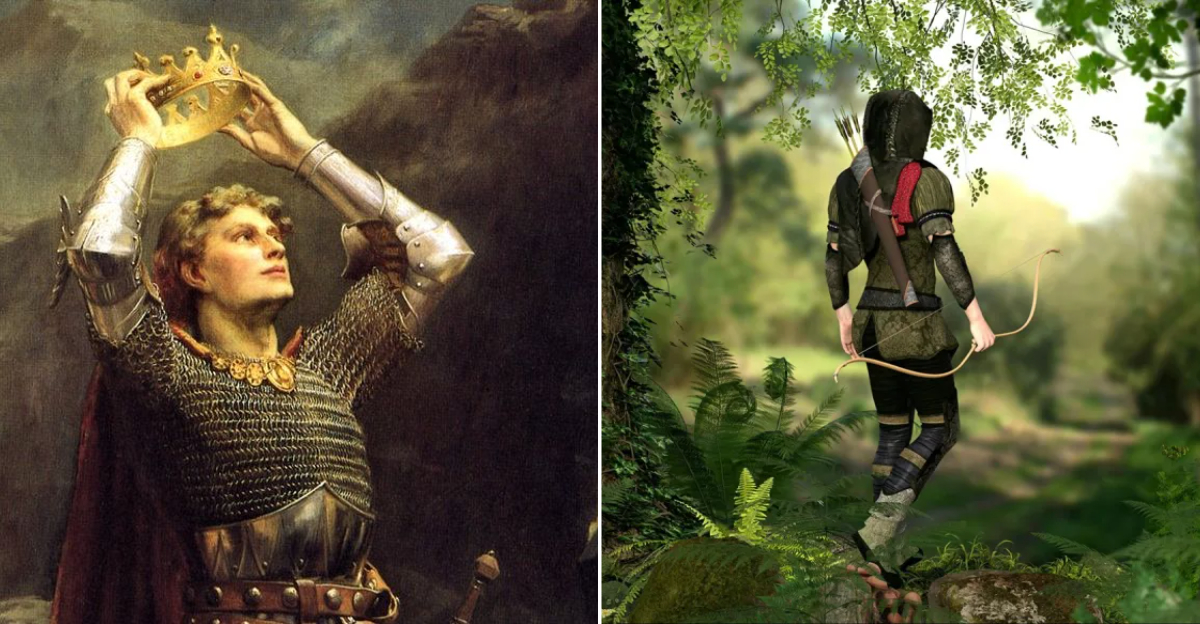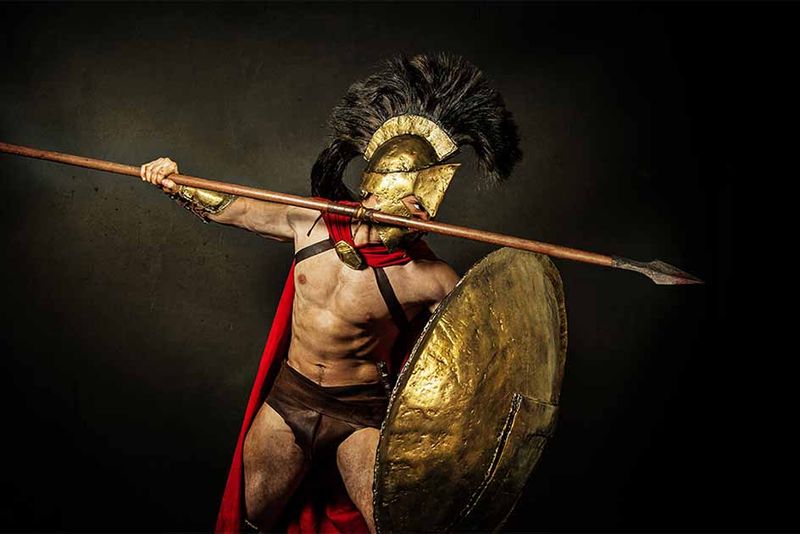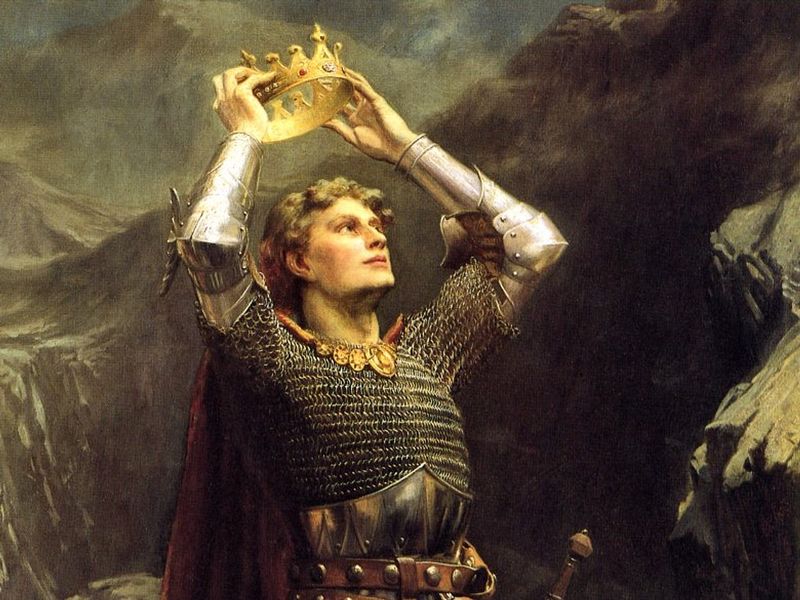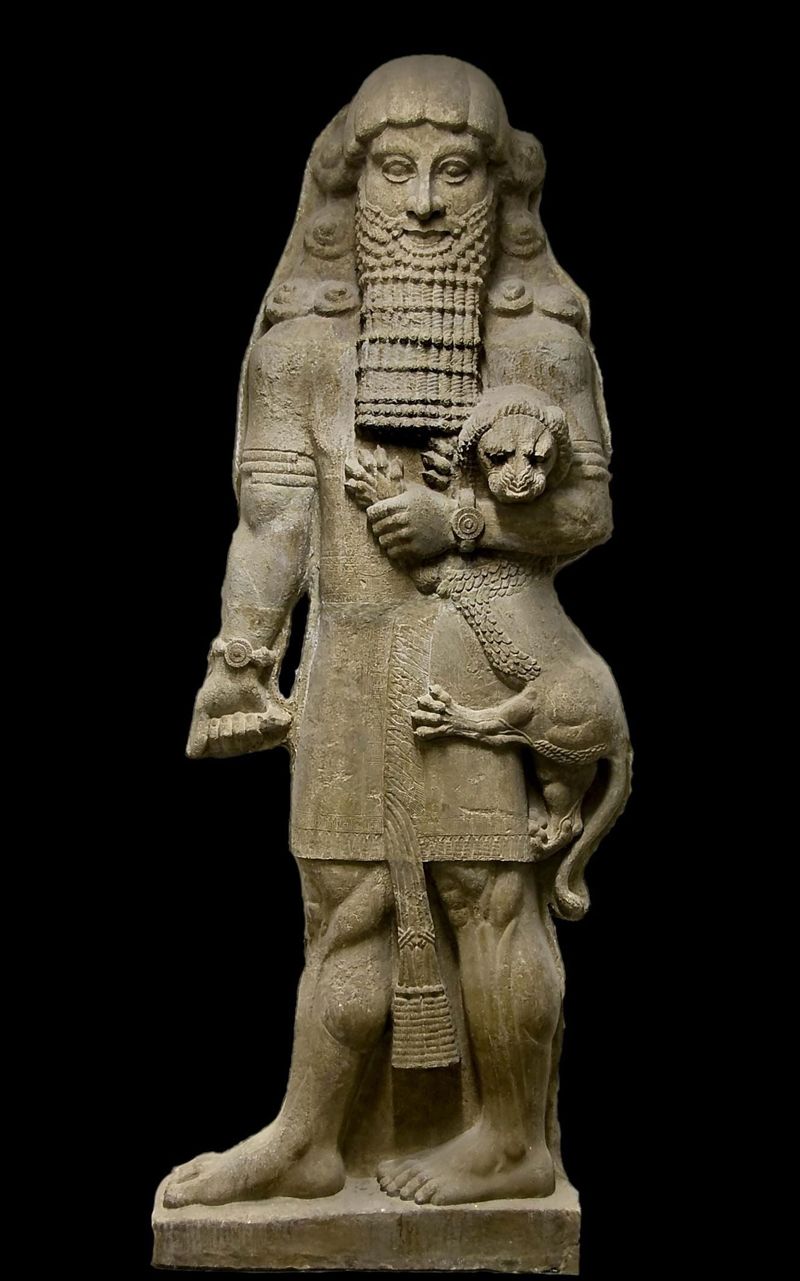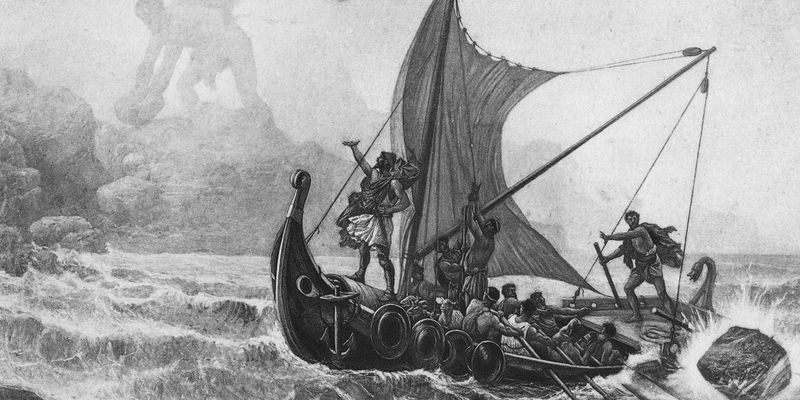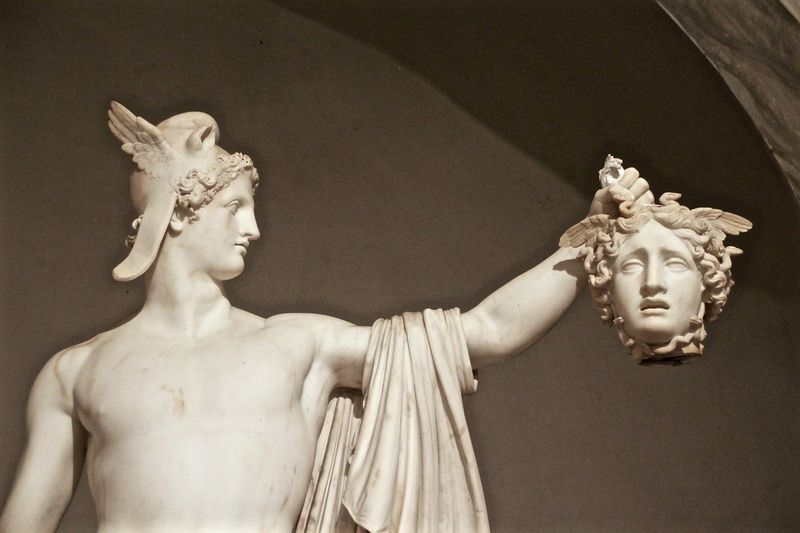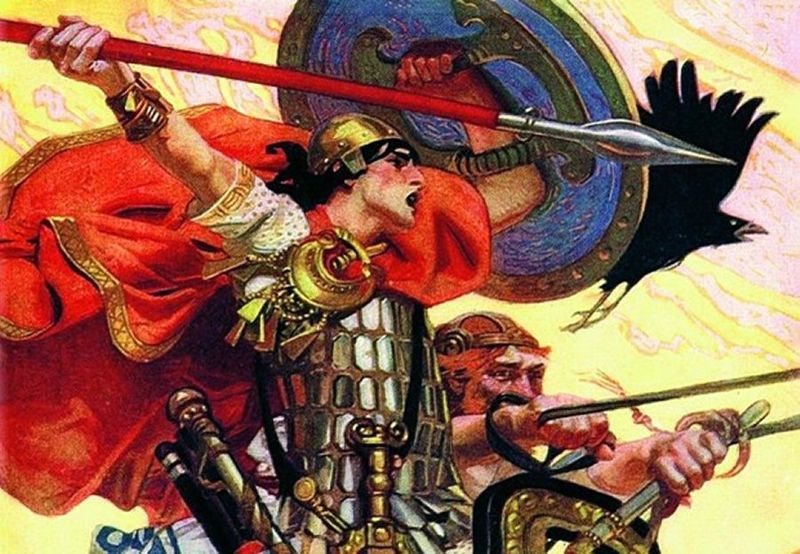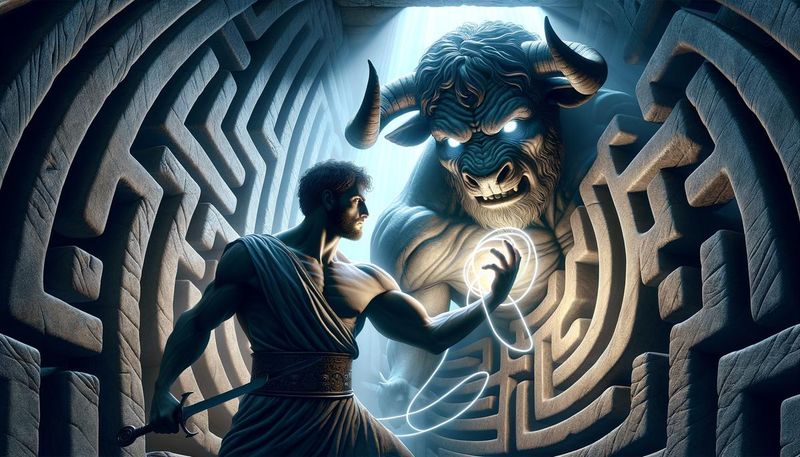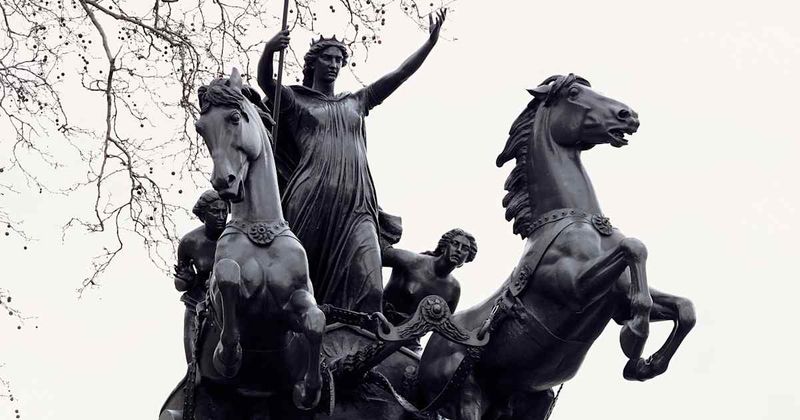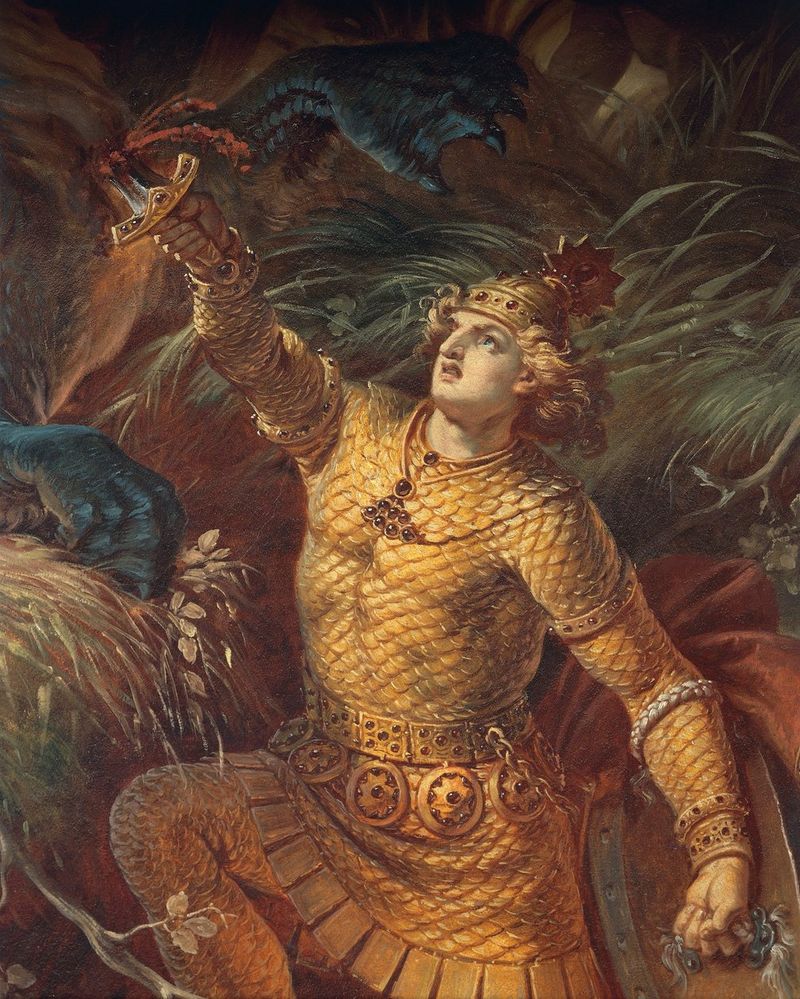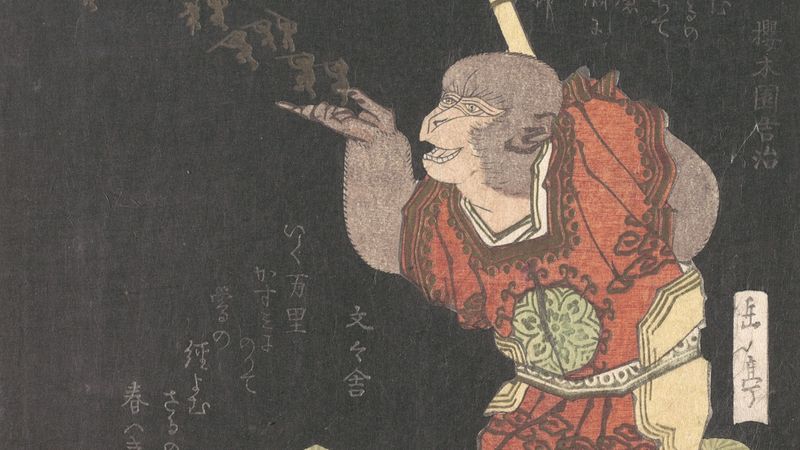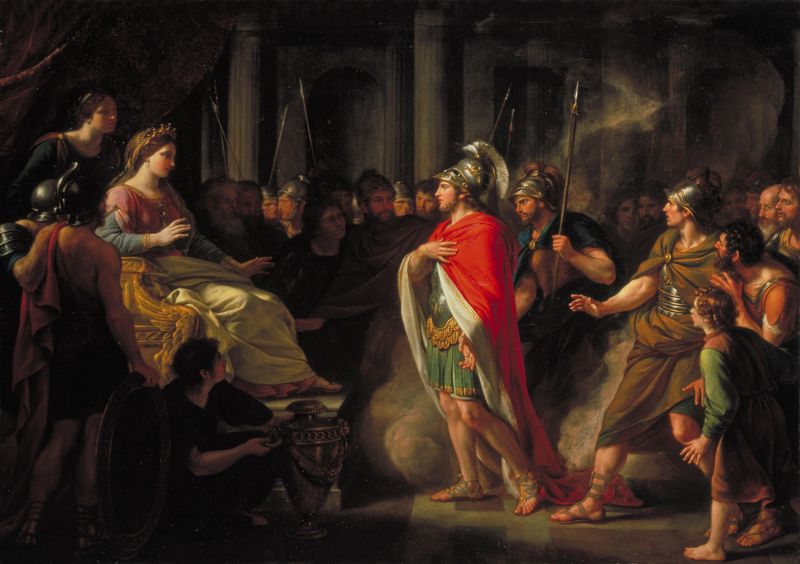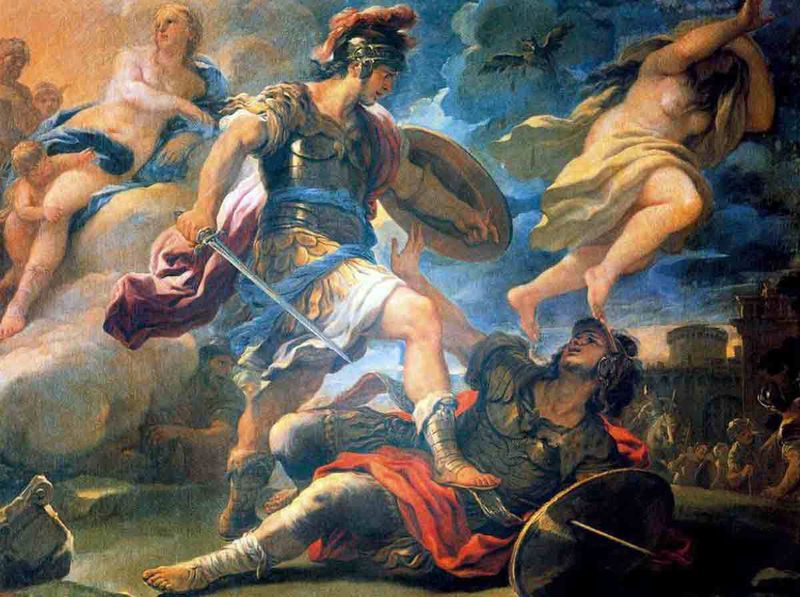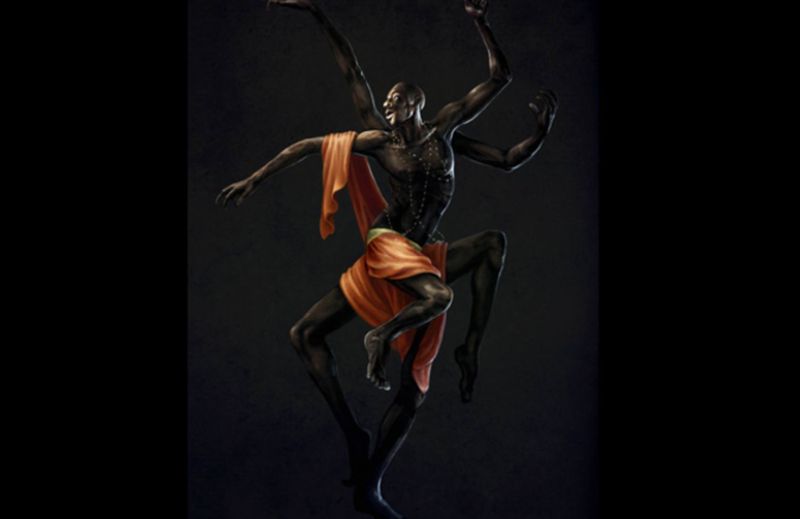Some heroes are carved into the annals of history—others, into the mythos of culture. While they may never have walked the Earth, these legendary figures continue to live on in stories, poems, and movies, shaping ideals of bravery, loyalty, and sacrifice. Let’s take a journey through time and legend to explore 20 ancient heroes who probably never existed—but whose tales are immortal.
1. Achilles
Achilles, the Greek warrior of Homer’s The Iliad, is known for his near invincibility, save for his infamous heel. As a central figure of the Trojan War, his exploits and emotions paint a vivid yet mythical picture of heroism.
Despite the compelling narrative, no solid evidence supports Achilles’ real-life existence. His story, likely an amalgamation of various heroic ideals, serves as a poignant exploration of human strength and vulnerability. The epic’s enduring allure lies in its dramatic blend of valor and tragedy, echoing through ages.
2. Hercules (Herakles)
Hercules, son of Zeus, is famed for his 12 labors, making him the ancient world’s action hero. His tales of incredible strength and bravery are captivating, yet scholars widely regard him as a figure of myth rather than history.
The stories of Hercules reflect timeless themes of courage, redemption, and the human struggle against impossible odds. His mythical adventures have inspired countless retellings, capturing imaginations across millennia. Despite his legendary feats, evidence of his existence remains elusive, highlighting the power of storytelling in shaping cultural icons.
3. King Arthur
King Arthur, the legendary British monarch, is renowned for leading the defense against Saxon invaders. His tales, filled with mystical elements like Excalibur, Camelot, and the Round Table, captivate imagination. Though his existence remains unproven, the stories of Arthur are entrenched in cultural myth.
Arthur’s legend intertwines history with fantasy, blending the idea of a noble king with the magic of Merlin. Through countless adaptations, his narrative persists, symbolizing chivalry and justice. Yet, no historical records confirm his reign, leaving his existence a tantalizing mystery.
4. Gilgamesh
Gilgamesh, a Sumerian king turned demigod, is the central figure of the Epic of Gilgamesh. Though loosely based on a potential historical figure, the epic’s narrative is largely fictional, depicting his quest for immortality.
As one of the earliest known works of literature, the Epic of Gilgamesh explores themes of friendship, mortality, and the human condition. Gilgamesh’s tale blurs the line between human and divine, weaving a story that resonates with universal truths. Despite his mythological status, his story informs our understanding of ancient civilizations.
5. Robin Hood
Robin Hood, England’s favorite outlaw, is celebrated for robbing the rich and giving to the poor. While multiple historical figures may have inspired his character, concrete evidence of his existence is absent.
His legend embodies themes of social justice and resistance against tyranny, making him a timeless cultural icon. The tales of Robin Hood and his Merry Men continue to entertain and inspire, symbolizing the enduring fight for equality and fairness. His mythical status underscores the blend of folklore and socio-political commentary within his story.
6. Romulus
Romulus, one of the twin brothers said to have founded Rome, is surrounded by the myth of being raised by a she-wolf. His story intertwines with the legendary origins of Rome, yet historical proof of his existence is lacking.
The tale of Romulus and Remus captures the imagination with its blend of adventure, rivalry, and destiny. As Rome’s legendary founder, Romulus’s narrative is a mix of mythological elements and historical aspirations, reflecting the city’s cultural and political ideals. His mythical beginning adds depth to Rome’s storied past.
7. Beowulf
Beowulf, the dragon-slaying hero of the Anglo-Saxon epic poem, represents ideals of heroism and bravery. Despite his legendary feats, no historical evidence confirms his existence as a real figure.
The epic poem of Beowulf is a cornerstone of English literature, blending themes of loyalty, valor, and the struggle against formidable foes. His adventures, tackling monsters like Grendel, capture the essence of ancient heroism. As a symbol of cultural heritage, Beowulf’s mythical story continues to inspire, reflecting the timeless allure of epic narratives.
8. Odysseus
Odysseus, the clever Greek king, took 10 years to return from Troy, facing myriad challenges. From encounters with the Cyclops to the enchantress Circe, his adventures are more literary than historical.
The Odyssey, attributed to Homer, depicts Odysseus’s cunning and resilience in the face of adversity. While his existence remains unproven, the tale offers profound insights into ancient Greek culture and values. Odysseus’s legendary journey combines myth, morality, and the human spirit, making it an enduring epic that transcends time.
9. Perseus
Perseus, known for slaying Medusa and rescuing Andromeda, is a staple of Greek mythology, yet lacks factual basis. His heroic deeds, aided by divine gifts, are legendary.
As a figure of myth, Perseus embodies the archetype of the heroic journey, facing impossible odds with courage and ingenuity. His tales, filled with adventure and divine intervention, illustrate the values and beliefs of ancient Greek society. Despite being a mythical construct, Perseus’s narrative continues to captivate through its timeless themes of bravery and triumph.
10. Cú Chulainn
Cú Chulainn, an Irish warrior with supernatural abilities, is a folk hero celebrated in Irish mythology. Born of both man and god, his story is steeped in legend rather than history.
Cú Chulainn’s tales are filled with valor, magic, and tragic destiny, embodying the spirit of ancient Celtic traditions. His legendary exploits, such as defending Ulster, showcase the blend of human and supernatural elements in mythology. As a cultural icon, Cú Chulainn’s narrative symbolizes the rich tapestry of Irish folklore and warrior ethos.
11. Theseus
Theseus, the Athenian hero who defeated the Minotaur in the Labyrinth, is a figure of legend. His story, filled with adventure and bravery, remains an integral part of Greek mythology.
The tale of Theseus combines heroism with themes of intellect and justice, as he navigates challenges to secure Athens’ future. Despite his legendary status, no historical evidence supports his existence, yet his story endures as a testament to human ingenuity. Theseus’s mythical journey continues to inspire, reflecting timeless ideals of courage and leadership.
12. King Midas
King Midas, known for his golden touch, serves as a cautionary tale more than a biography. His story, rooted in myth, illustrates the dangers of greed and desire.
The legend of Midas explores themes of wealth, consequence, and the human condition, offering insights into ancient moral lessons. Despite the fantastical elements, the tale resonates with universal truths about the pursuit of happiness and fulfillment. As a mythological figure, Midas’s narrative endures as both a warning and a reflection on human nature’s complexities.
13. Jason (and the Argonauts)
Jason, leader of the quest for the Golden Fleece, embarks on one of mythology’s grandest journeys. His tale, filled with adventure and peril, is likely fictional, yet enduringly captivating.
The story of Jason and the Argonauts combines the thrill of exploration with themes of heroism and betrayal. While the historical basis is doubtful, the narrative reflects the spirit of ancient Greek quests and aspirations. Jason’s mythical voyage is a timeless saga, inspiring countless adaptations and capturing imaginations with its blend of adventure and legend.
14. Boudica (in her larger-than-life legend)
Boudica, while a real historical figure, is enveloped in a heroic, near-superhuman legend that likely exaggerates the truth. Her story of rebellion against Roman rule in Britain resonates through time.
The legend of Boudica embodies themes of resistance, courage, and national identity, illustrating the power of myth in shaping historical narratives. Her larger-than-life depiction highlights the blend of fact and fiction, inspiring generations with tales of defiance and leadership. As both a historical and mythical figure, Boudica’s narrative continues to captivate and empower.
15. Sigurd (or Siegfried)
Sigurd, a Norse hero famed for slaying dragons and bathing in their blood, emerges from poetic legend. His epic tales, filled with adventure and myth, are rooted in Scandinavian folklore.
The story of Sigurd blends themes of heroism, destiny, and the supernatural, capturing the imagination with its vivid imagery and dramatic narrative. While largely fictional, his legend reflects the cultural values and mythic traditions of the Viking era. Sigurd’s mythical adventures continue to inspire, symbolizing the enduring allure of epic heroism and Nordic mythology.
16. Sun Wukong (Monkey King)
Sun Wukong, the trickster hero of Journey to the West, embodies rebellion, power, and cleverness. As a mythological figure, he symbolizes the blend of mischief and heroism.
His tales are rife with magical feats, humor, and profound lessons, reflecting the richness of Chinese folklore. Sun Wukong’s narrative explores themes of transformation, redemption, and the pursuit of enlightenment. Despite his mythical origins, the Monkey King’s story remains a beloved cultural epic, inspiring countless adaptations and resonating with universal truths about freedom and wisdom.
17. Enkidu
Enkidu, created by the gods in the Epic of Gilgamesh, is a wild man turned loyal companion, existing entirely in literary myth. His transformation from nature to civilization is central to the epic’s themes.
The character of Enkidu embodies the dichotomy between wildness and humanity, serving as a mirror to Gilgamesh’s journey. His story, filled with friendship, adventure, and ultimate sacrifice, reflects the timeless exploration of human identity. Enkidu’s narrative, rich in symbolism, continues to captivate, illustrating the enduring power of ancient storytelling.
18. Dido, Queen of Carthage
Dido, Queen of Carthage, is best known for her tragic love story with Aeneas in Roman myth. Despite her compelling narrative, historians doubt her existence as a historical figure.
Her tale, woven into the fabric of Roman mythology, explores themes of love, betrayal, and the founding of Carthage. Dido’s story, blending romance and political intrigue, remains a powerful narrative that captures the imagination. As a symbol of cultural and historical artistry, her legend endures, reflecting the complexity of human emotions and mythic storytelling.
19. Aeneas
Aeneas, a Trojan hero who supposedly founded the Roman lineage, is central to Virgil’s Aeneid. His story reads more like propaganda than history, yet it remains a cultural cornerstone.
The Aeneid explores themes of duty, destiny, and the struggle to forge a new identity. While historical evidence of Aeneas’s existence is absent, his narrative reflects the ideals and aspirations of Roman society. Aeneas’s journey, symbolic of human perseverance and cultural heritage, continues to inspire as a timeless epic of myth and legend.
20. Anansi the Spider
Anansi the Spider, a West African folk hero, is celebrated for his wit and storytelling prowess. Though not a human hero, his legendary tales are rich with moral lessons and cultural wisdom.
Anansi’s stories, filled with humor and cleverness, explore themes of trickery, intelligence, and survival. As a symbol of cultural identity and oral tradition, his narrative continues to resonate across generations. Anansi’s mythical world, where animals and humans interact in moral tales, offers timeless insights into human nature and the complexities of life.
